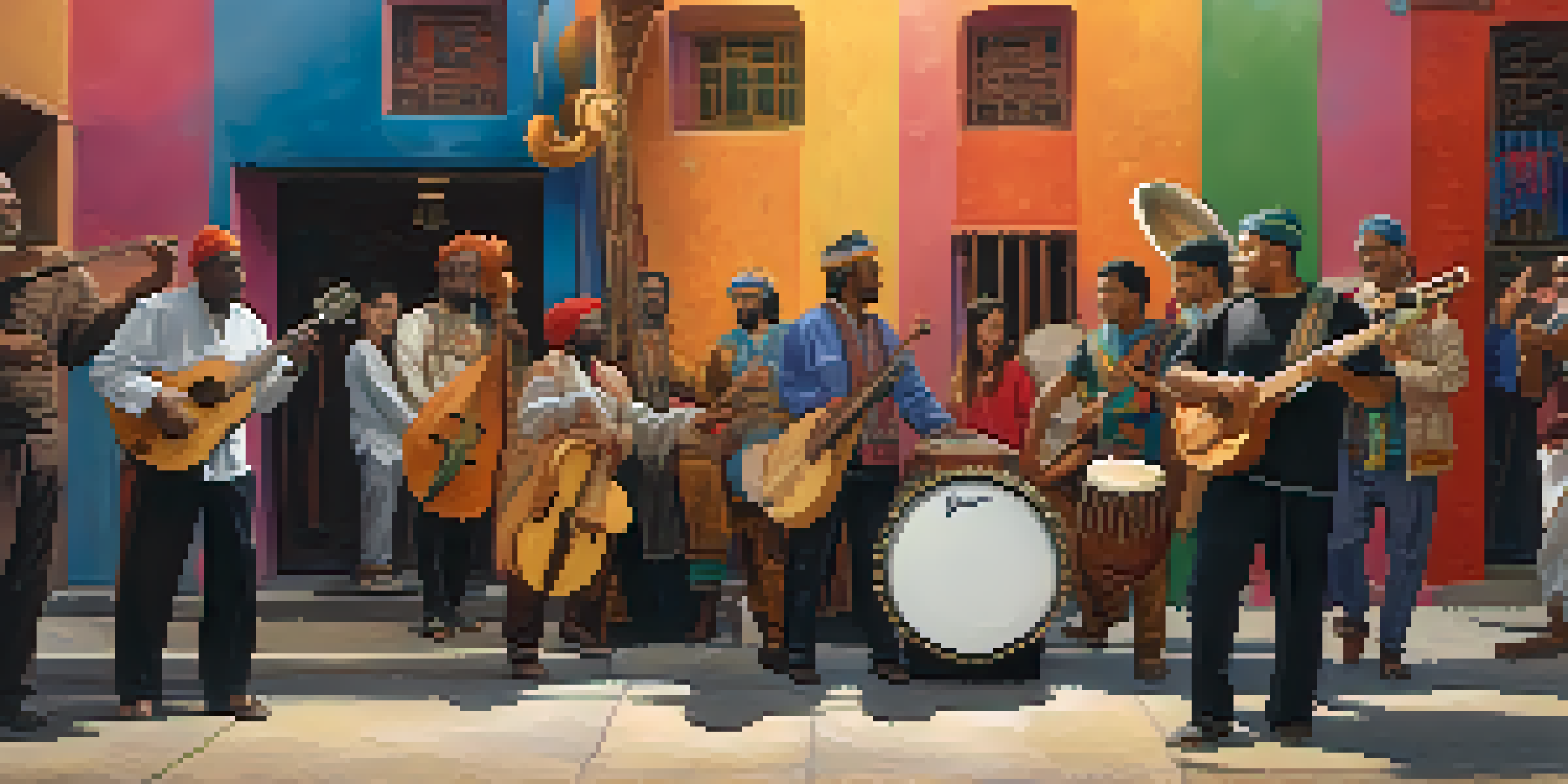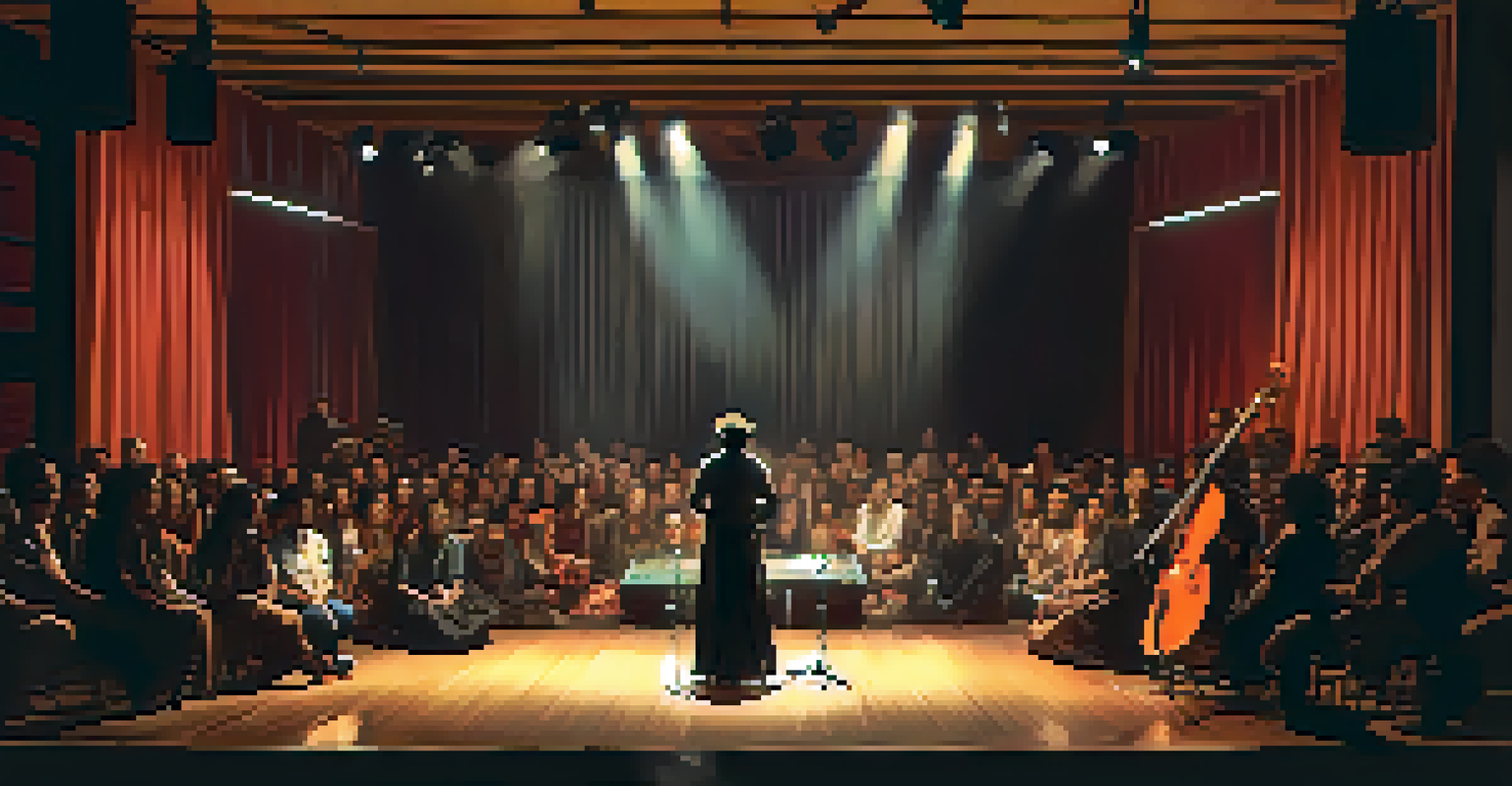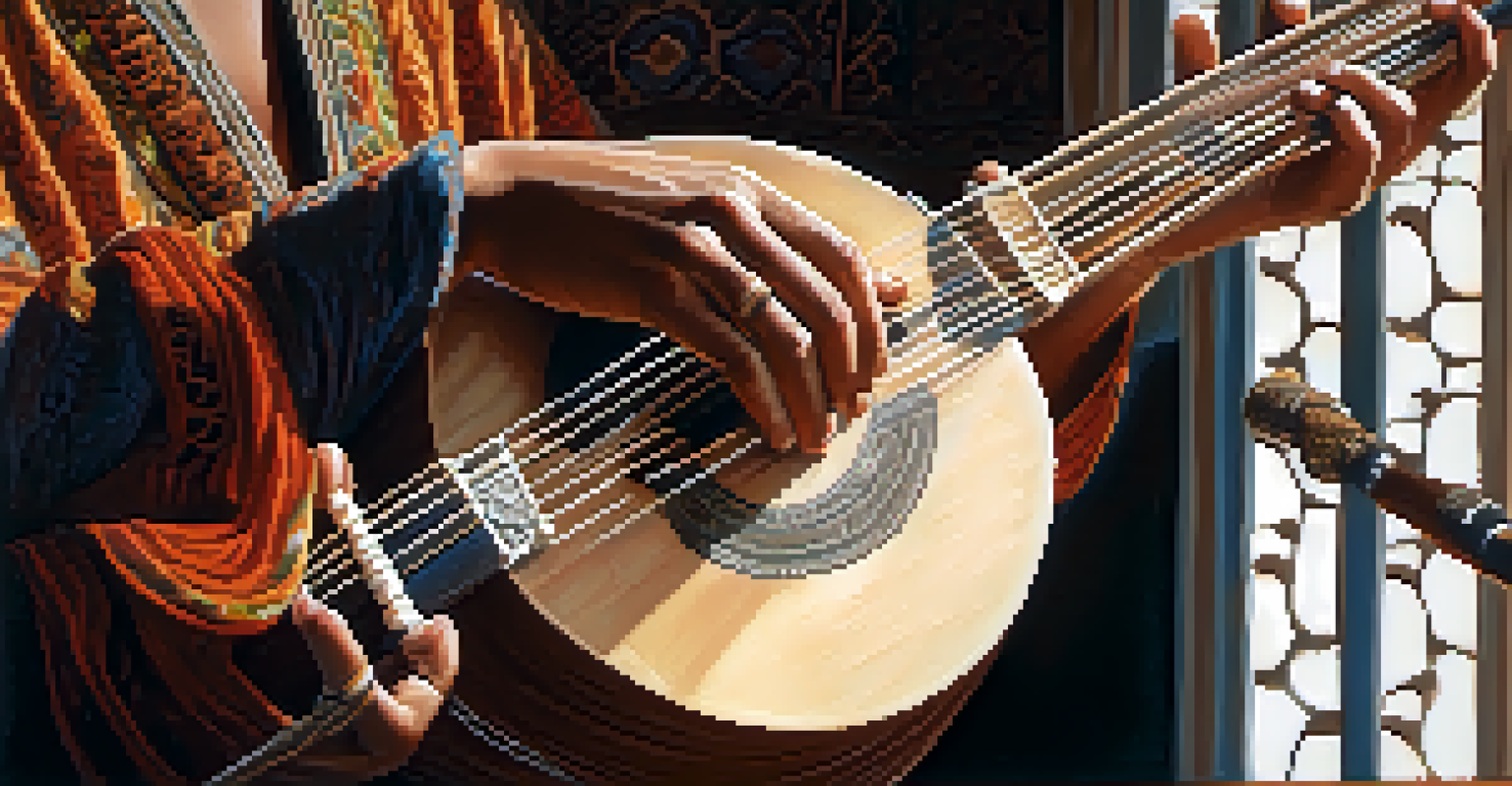Cultural Appropriation in Music: A Historical Overview

Understanding Cultural Appropriation in Music
Cultural appropriation in music refers to the adoption of elements from one culture by another, often without permission or understanding. This phenomenon can be seen when artists borrow styles, instruments, or themes from cultures that are not their own, sometimes leading to controversy. While cross-cultural influences have always existed in music, the line between appreciation and appropriation can be blurry and contentious.
Cultural appropriation is the act of taking or borrowing from a culture that is not your own, without understanding or respecting the significance of that culture.
Consider the way rock and roll emerged, heavily influenced by African American blues and jazz. Artists like Elvis Presley helped popularize these genres, but this raised questions about who truly owns the music. Understanding this dynamic is crucial to navigating the rich tapestry of musical influences across history.
Ultimately, the discussion revolves around respect, recognition, and the impact of power dynamics between cultures. It's important to acknowledge the origins of musical styles and the artists behind them while celebrating the diversity that music brings to the world.
Historical Roots of Cultural Exchange in Music
Music has always been a melting pot of sounds and styles, with cultures influencing each other throughout history. From the Silk Road to the transatlantic slave trade, these exchanges shaped the music we know today. For instance, the blending of African rhythms with European melodies gave rise to new genres, showcasing the power of collaboration.

However, not all exchanges are equal. Often, dominant cultures have borrowed from marginalized ones, leading to imbalances in recognition and compensation. This historical context is essential for understanding the complexities of cultural appropriation in contemporary music.
Cultural Appropriation Explained
Cultural appropriation in music involves adopting elements from another culture without permission or understanding, often leading to controversy.
As we explore the past, it's vital to recognize the contributions of diverse cultures while also acknowledging the power dynamics at play. Music not only reflects cultural exchanges but also highlights the ongoing conversation about respect and ownership.
The Impact of Colonialism on Music Styles
Colonialism has played a significant role in shaping music and cultural exchanges around the world. As colonizers imposed their cultures on indigenous populations, they often appropriated local music styles for their own purposes. This resulted in a complicated legacy where traditional music was altered or commercialized, sometimes stripping it of its original meaning.
Music is a universal language, but it can also be a tool for cultural exchange or cultural appropriation, depending on how it is used.
Take reggae music, which originated in Jamaica, for example. This genre has roots in African, Caribbean, and American influences, yet it has been co-opted by artists worldwide, often without acknowledgment of its origins. This raises important questions about who gets to profit from these styles and whose stories are told.
Understanding the impact of colonialism on music helps us see the broader implications of cultural appropriation. It encourages us to listen more deeply and respect the narratives behind the sounds we enjoy.
Case Studies: Iconic Examples of Appropriation
Throughout music history, there are numerous instances of cultural appropriation that have sparked debate. One prominent example is the use of Native American imagery and music in rock bands, which has often been criticized for being disrespectful. Artists like Led Zeppelin and The Doors borrowed elements from Native American culture, raising questions about authenticity and appreciation.
Another example is the appropriation of hip-hop culture by mainstream artists. While many have embraced and celebrated hip-hop, others have faced backlash for commodifying a genre that originated from the struggles of marginalized communities. This illustrates the fine line between celebration and appropriation.
Impact of Colonialism on Music
Colonialism has significantly influenced music styles, resulting in the alteration and commercialization of traditional sounds.
These case studies highlight the need for artists to engage thoughtfully with the cultures they draw from. By recognizing the origins and significance of these influences, musicians can foster genuine connections while avoiding appropriation.
The Role of Social Media in Cultural Conversations
In today's digital age, social media platforms have become powerful tools for discussing cultural appropriation in music. Artists and fans alike can voice their opinions, share experiences, and hold creators accountable for their actions. This democratization of conversation allows for a broader range of perspectives to be heard.
For instance, viral moments on platforms like Twitter and Instagram can spark discussions about specific songs or artists that may be appropriating cultural elements. These conversations can lead to increased awareness and education about the importance of respecting cultural heritage.
While social media can amplify these discussions, it can also create a polarized environment. It's crucial for participants to engage respectfully and thoughtfully, striving for understanding rather than conflict in these conversations.
Navigating the Fine Line: Appreciation vs. Appropriation
As music lovers, it's essential to navigate the thin line between appreciation and appropriation thoughtfully. Appreciation involves genuinely respecting and honoring another culture, often by collaborating with artists from that culture. This can lead to beautiful and enriching musical experiences that celebrate diversity.
In contrast, appropriation occurs when artists exploit cultural elements for their gain without understanding their significance. This often results in backlash, as marginalized communities feel their culture is being misrepresented or commercialized.
Navigating Appreciation vs. Appropriation
Artists must differentiate between genuine appreciation of a culture and appropriation, which can exploit cultural elements for profit.
To foster appreciation, artists can educate themselves about the cultures they draw from and seek genuine collaborations. This approach not only enriches their music but also promotes a culture of respect and understanding.
Looking Ahead: The Future of Cultural Appropriation in Music
As we move forward, the conversation about cultural appropriation in music will continue to evolve. With globalization and increased access to diverse musical styles, artists have more opportunities than ever to explore different cultures. However, this also comes with the responsibility to approach these influences with care and respect.
Emerging artists are increasingly aware of the implications of their work, often seeking to create music that honors its roots. This shift indicates a growing recognition of the importance of authenticity and acknowledgment in the creative process.

Ultimately, the future of cultural appropriation in music lies in open dialogue and education. By fostering conversations about respect, recognition, and responsibility, we can create a more inclusive and harmonious musical landscape.